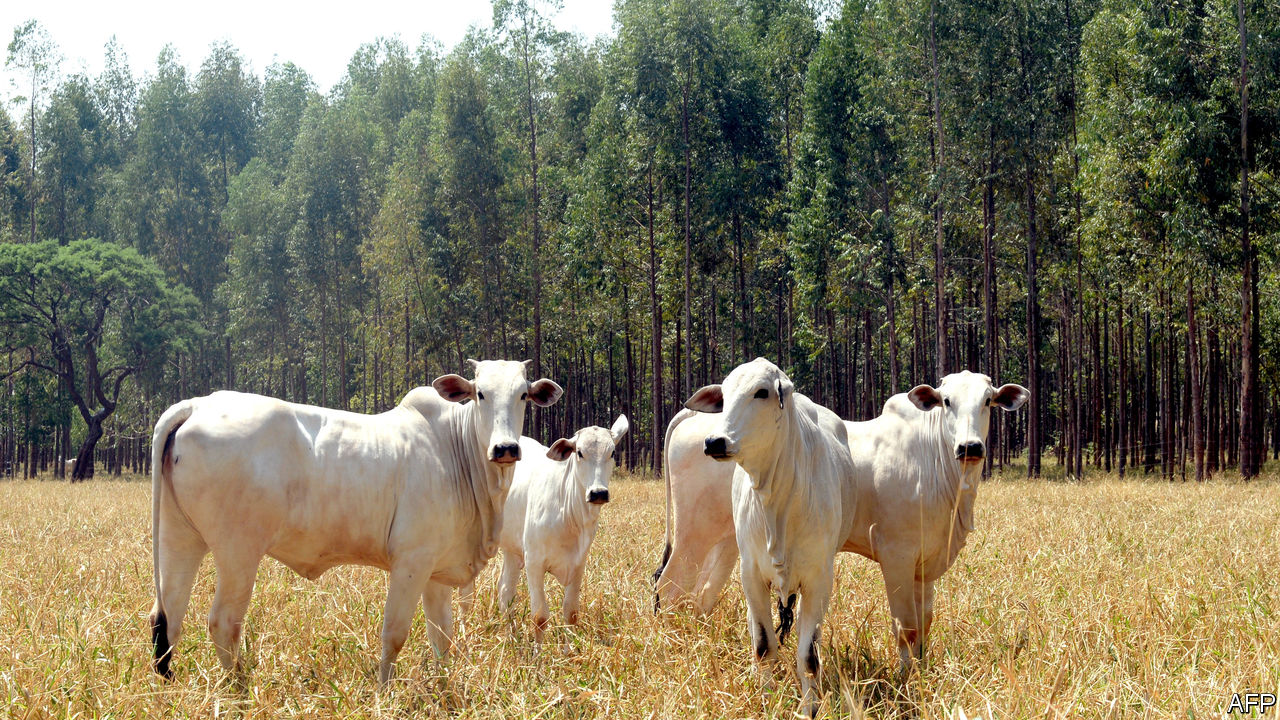AN HOUR’S drive from Brasília, Brazil’s capital, humped zebu cattle take refuge from the heat of the cerrado (tropical savannah) under neat rows of eucalyptus trees. The grove and the cattle belong to the cerrados branch of the Brazilian Agricultural Research Corporation (Embrapa) in Planaltina. Their purpose is to help researchers test how best to alternate crops and livestock in order to turn degraded pastures into productive fields. Besides providing shade (and, eventually, timber), the trees put nutrients into the soil and offset the effects of methane, a greenhouse gas belched by the ruminants. In 2005 such “integrated systems” covered less than 2m hectares (5m acres). Today they occupy 15m hectares, 5% of Brazil’s farmland.
Maurício Lopes, Embrapa’s chief since 2012, believes such know-how will be as valuable as the technology Embrapa invented in the 1970s and 1980s, which helped make Brazil an agricultural superpower….Continue reading
Americas


